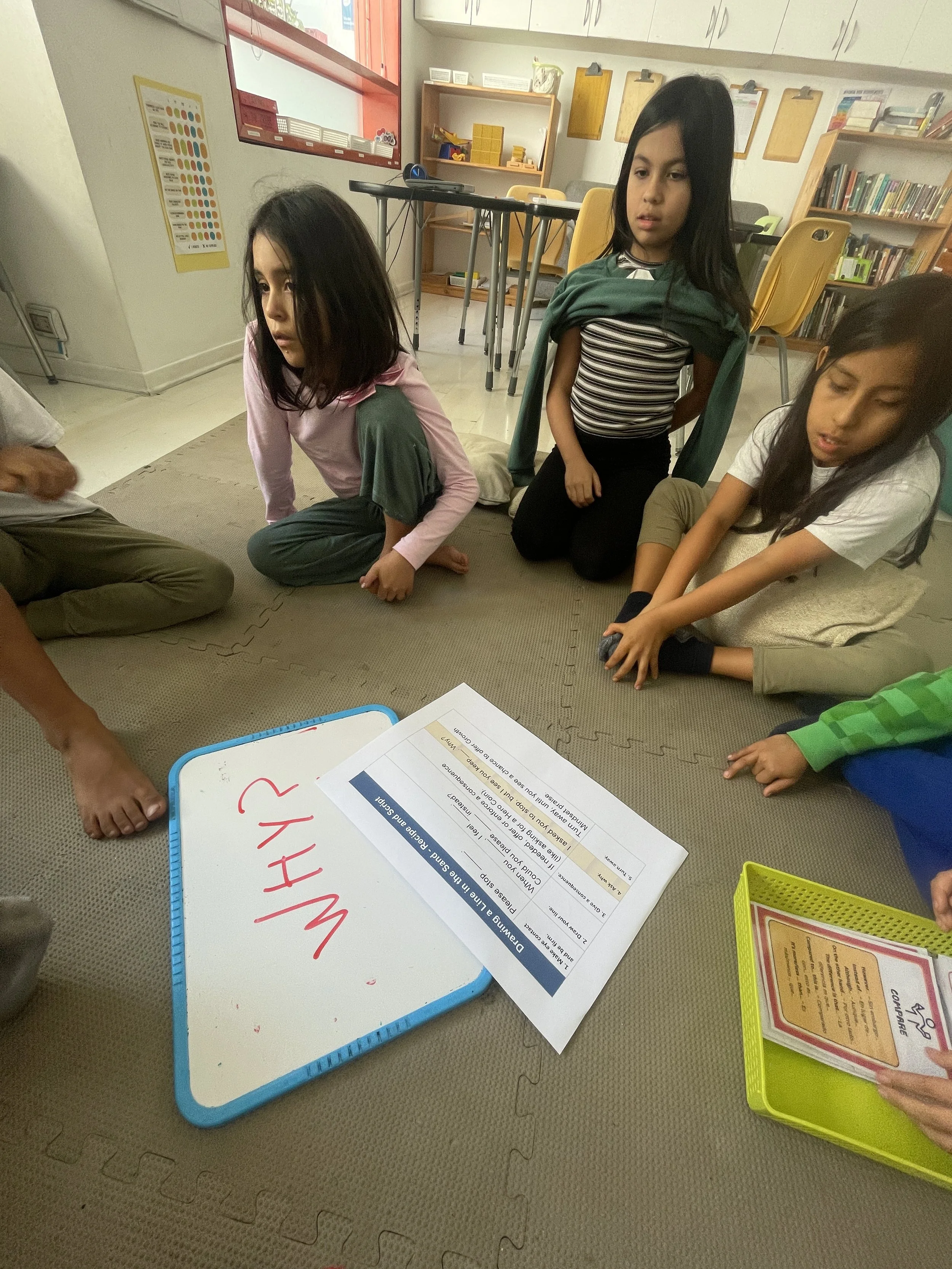By Giannira Giunti
In our studio, learning to hold each other accountable is an ongoing process, full of questions, not quick answers. There isn’t one way to respond when something hurts, feels uncomfortable, or crosses a line.
This session we are focusing on giving us a pause, to wonder, and to try to understand what’s going on behind someone’s actions. Little by little, I've noticed how curiosity can become a useful tool. Not a tool to fix or solve immediately, but one that opens space to understand the other person. Instead of moving directly to consequences (like giving warnings or charging Hero Coins) some Pumas are beginning to try another step: asking why. This is risky because emotions tend to flare up in these conversations, and it can be uncomfortable. But at the end it feels better, more connected.
During our morning launches, we’ve explored imagined situations: what could someone do if their boundary isn’t respected? If a joke doesn’t stop, or someone keeps distracting them even after they’ve said no? These conversations don’t always lead to a clear “right” answer. But they often reveal thoughtful questions and options. A younger Puma shared in these discussions, “Maybe they keep doing it because something’s wrong… I’d want to know what’s going on.” Another added, “If you don’t ask, they might keep doing it in other moments too.”
Since we reflected about it, I started to see some changes in the tribe. One normal day, after being charged multiple Hero Coins (fines they use to hold each other accountable) from another learner, I asked her what she thought about it. I thought she was going to appeal those charges, to ask their own student-led authorities (Council) to override them for being unfair. But to my surprise, she asked instead for a peace table. She wanted to understand why. That moment didn’t resolve everything instantly, but it allowed for connection and reflection. And sometimes, that’s more than enough to keep learning.
This session we keep learning that It’s not about choosing between kindness or consequences. It’s about making space for both. And that starts with being willing to ask why, to “seek first to understand” (Stephen Covey, The 7 Habits of Highly Effective People). This is not to excuse, but to see more clearly. Understanding someone else’s experience can shift how we respond, and sometimes, that understanding is what makes a real difference. Because understanding others, fosters connection and it can repair the damage. Understanding others' views and emotions is part of developing empathy.
There’s still much to learn. This practice is evolving, and each day brings new challenges. But if there’s one thread we keep coming back to, it’s this: curiosity creates room for empathy. And empathy invites deeper accountability — the kind that doesn’t come from a rulebook, but from relationships. And that's way more profound and life changing!
And you? Can you remember the last time you paused to ask why, and truly listened to the answer with an open mind? Maybe, by asking more generous questions, we make room for more honest growth — in others, and in us.


